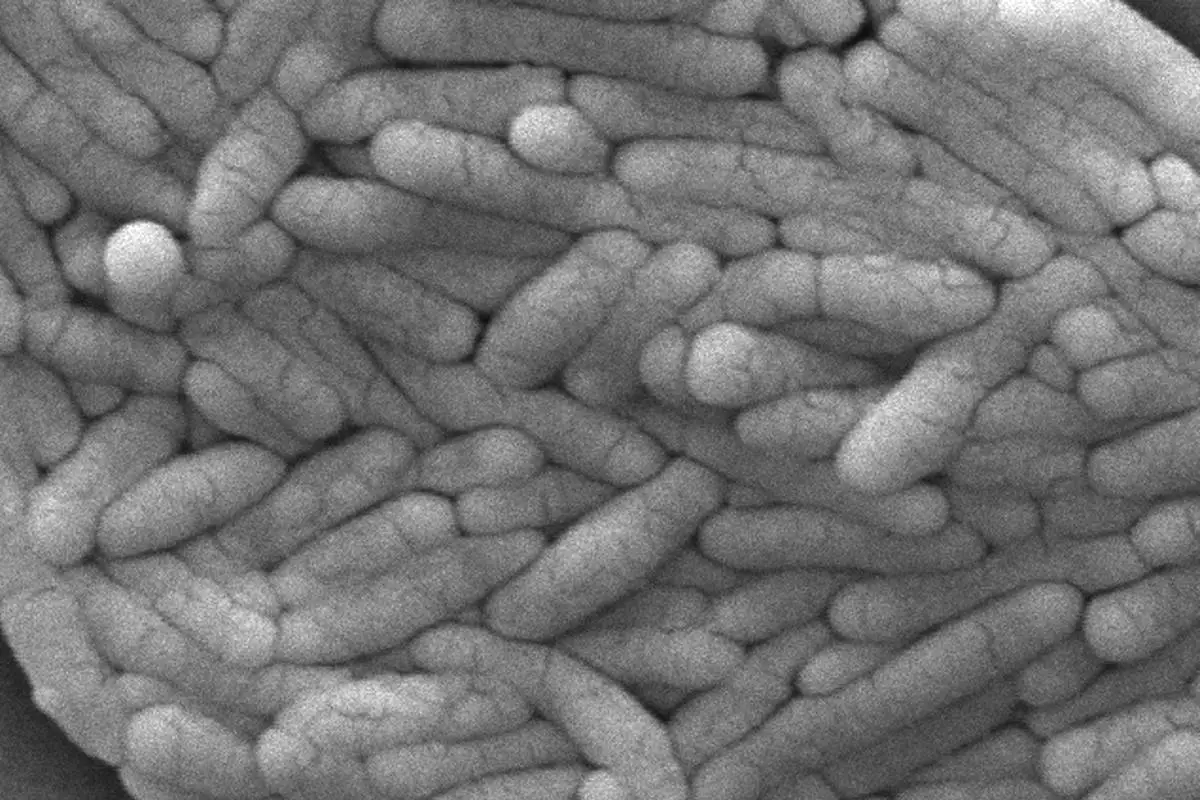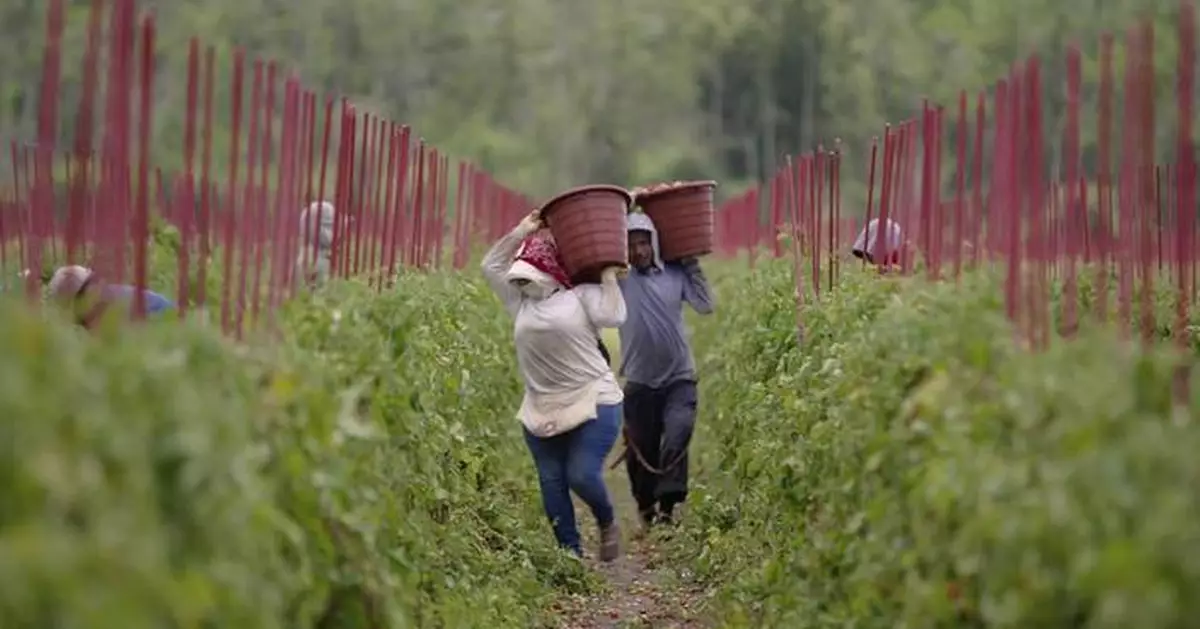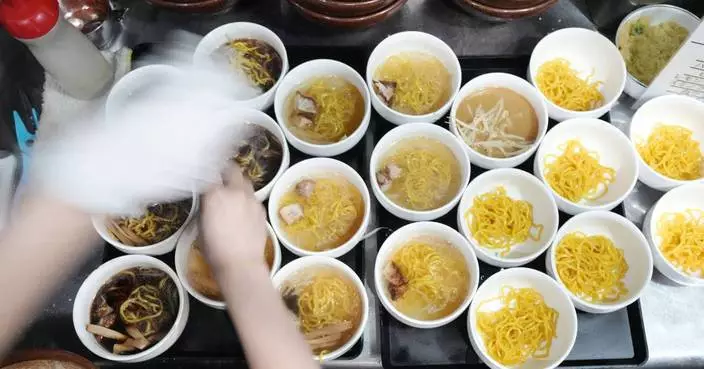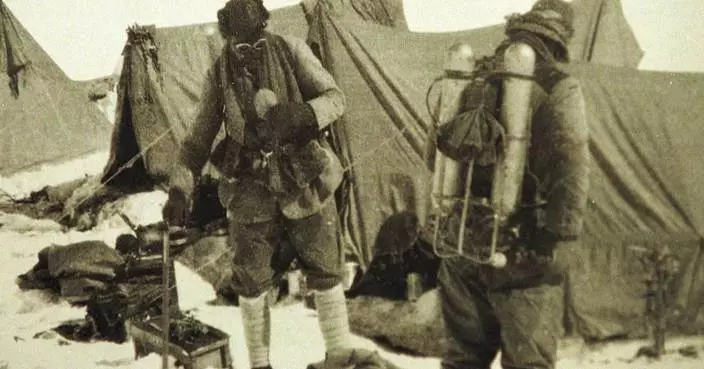The Oscar -nominated documentary “ Food, Inc ” helped change the way many consumers think about the systems behind the things we eat.
But in the 16 years since it came out, new problems have arisen and old problems got worse, magnified in part by shortages during the pandemic. They’re given a spotlight in a sequel, “ Food, Inc 2,” arriving in theaters and on digital in April.
The filmmakers are going one step further, too: The activist media company Participant, and producers River Road and Magnolia Pictures, are launching a multi-faceted campaign to raise awareness about farm workers rights, corporate consolidation and ultra-processed foods.
The campaign, announced Thursday, is in partnership with: The Open Markets Institute, a non-profit that “uses research and journalism to expose the dangers of monopolization”; The Coalition of Immokalee Workers, supporting the rights of farmworkers; And FoodFight USA, the nonpartisan movement started by entrepreneurs Todd Wagner and Lori McCreary with a goal of “cleaning up” the American food supply, which they estimate is 70% ultra-processed foods.
In October, California became the first state to ban four chemicals from processed food and drinks sold in California by 2027. The chemicals — red dye no. 3, potassium bromate, brominated vegetable oil and propyl paraben — are still used in popular products like Peeps, the popular marshmallow chicks most associated with Easter. The chemical has been linked to cancer and has been banned from makeup for more than 30 years.
“The passing of the California Food Safety Act and the subsequent introduction of similar bills in five additional states illustrate the timeliness of (the) documentary,” Wagner said in a statement. “People are beginning to recognize how tainted the U.S. food supply is and that many of the chemicals in our food are banned in other countries.”
All four chemicals are already banned in foods in the European Union.
David Linde the CEO of Participant noted that the company’s campaign for the first “Food, Inc” “supported the first major piece of food safety legislation since the 1930s” referring to the Food Safety Modernization Act, which Barack Obama signed into law in 2011. Linde said the company is proud to to “continue the critical work of galvanizing change in the food industry.”
“Food, Inc 2,” directed by Robert Kenner and Melissa Robledo and produced by Michael Pollan and Eric Schlosser, will play in select theaters on April 9 before its digital release on April 12.
This story has been updated to remove references to senators supporting the Open Markets Institute.

This image released by Magnolia Pictures shows promotional art for the documentary "Food, Inc. 2." (River Road/Participant/Magnolia Pictures via AP)

This image released by Magnolia Pictures shows a scene from the documentary "Food, Inc. 2." (River Road/Participant/Magnolia Pictures via AP)

This image released by Magnolia Pictures shows a scene from the documentary "Food, Inc. 2." (River Road/Participant/Magnolia Pictures via AP)
Poultry producers will be required to bring salmonella bacteria in certain chicken products to very low levels to help prevent food poisoning under a final rule issued Friday by U.S. agriculture officials.
When the regulation takes effect in 2025, salmonella will be considered an adulterant — a contaminant that can cause foodborne illness — when it is detected above certain levels in frozen breaded and stuffed raw chicken products. That would include things like frozen chicken cordon bleu and chicken Kiev dishes that appear to be fully cooked but are only heat-treated to set the batter or coating.
It's the first time the U.S. Department of Agriculture has declared salmonella an adulterant in raw poultry in the same way that certain E. coli bacteria are regarded as contaminants that must be kept out of raw ground beef sold in grocery stores, said Sandra Eskin, a USDA food safety official.
The new rule also means that if a product exceeds the allowed level of salmonella, it can't be sold and is subject to recall, Eskin said.
Salmonella poisoning accounts for more than 1.3 million infections and about 420 deaths each year in the U.S., according to the Centers for Disease Control and Prevention. Food is the source of most of those illnesses.
The breaded and stuffed raw chicken products have been associated with at least 14 salmonella outbreaks and at least 200 illnesses since 1998, CDC statistics show. A 2021 outbreak caused at least three dozen illnesses in 11 states and sent 12 people to the hospital.
Despite changes to labels emphasizing that the products needed to be thoroughly cooked, consumers continued to fall ill, Eskin said.
“Sometimes the salmonella is very virulent,” she said.
Addressing a narrow category of poultry products lays the foundation for a new framework to regulate salmonella more broadly now being considered by federal officials, said Mike Taylor, a former U.S. Food and Drug Administration official.
Among other things, the proposal calls for greater testing for salmonella in poultry entering a processing plant, stricter monitoring during production and targeting three types of salmonella that cause one-third of all illnesses.
“It’s no question that moving down this path toward regulating salmonella as an adulterant is way overdue,” Taylor said.
Poultry industry officials have long said that the government already has tools to ensure product safety and that companies have invested in methods to reduce salmonella in raw chicken.
A representative for the National Chicken Council said officials had not seen the final rule. However, the trade group said in a statement it’s concerned the regulation represents an abrupt policy shift and that it “has the potential to shutter processing plants, cost jobs, and take safe food and convenient products off shelves, without moving the needle on public health.”
The USDA took similar action with E. coli bacteria in 1994 after deadly outbreaks of food poisoning tied to ground beef, and the number of related foodborne illnesses have fallen by more than 50%.
Seattle food safety lawyer Bill Marler — who represented clients in a deadly 1993 E. coli outbreak in fast-food hamburgers and has lobbied for broader changes in controlling salmonella — said the new regulation is a good first step.
“Setting a standard is going to force the industry to adjust,” he said.
The Associated Press Health and Science Department receives support from the Howard Hughes Medical Institute’s Science and Educational Media Group. The AP is solely responsible for all content.

This 2009 electron microscope image provided by the Centers for Disease Control and Prevention shows a large group of Gram-negative Salmonella typhimurium bacteria that had been isolated from a pure culture. Poultry producers will be required to bring salmonella bacteria in certain chicken products to very low levels to help prevent food poisoning under a final rule issued Friday, April 26, 2024, by the U.S. Department of Agriculture. (Janice Haney Carr/CDC via AP)













